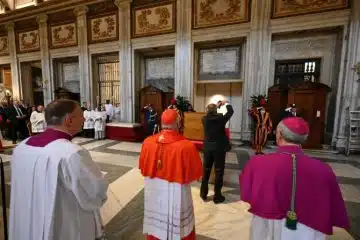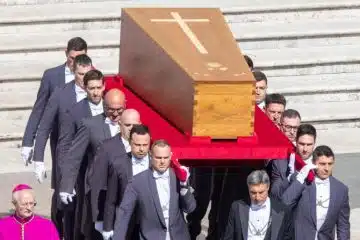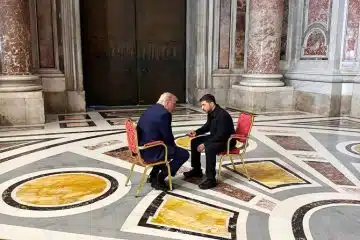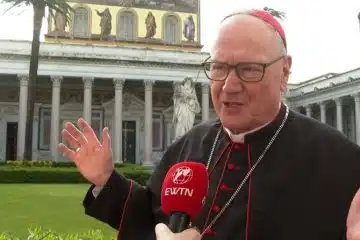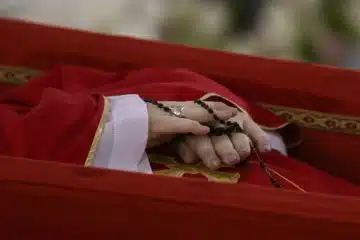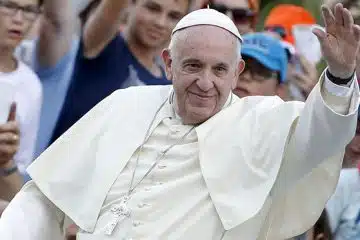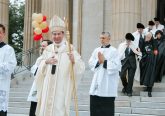Seek the Lord by Archbishop Dennis M. Schnurr July 2021
We all know the old expression “charity begins at home.” So does faith. One of the greatest responsibilities Catholic parents have is to pass the faith on to their children, primarily by example. This is what is meant by calling the family the “domestic church,” as many popes and Church documents have done. A child ideally first encounters a loving community of faith in his or her own home.
At the same time, a child’s relationship to the broader Church begins at baptism. Through water and the Spirit (John 3:5), the baptized are incorporated into the Body of Christ. This does not simply mean membership in a 2,000-year-old organization, although that is certainly important. “Baptism is the sacrament of faith,” the sacrament that makes all the others possible. The Catechism of the Catholic Church, however, makes this important qualifier: “But faith needs the community of believers. It is only within the faith of the Church that each of the faithful can believe” (CCC 1253).
In the earliest years of a young person’s life, when the habits and attitudes of a lifetime are formed, that community of believers is primarily represented by parents, grandparents and godparents. This responsibility can seem like a monumental challenge. That is why, in this issue of The Catholic Telegraph, you will read about how to encourage and strengthen your children’s faith. A few practices are essential:
You are encouraged to talk about your faith in a very personal way with your children. Share your experiences and invite their questions. Say grace together before meals. Pray together in the evening. Engage in charitable service as a family, teaching respect and care for every person made in the image and likeness of God. Offer up any family difficulties or sorrows to our Lord, showing how faithful suffering can be a source of grace. Most importantly, let your children see you living your faith through active and whole-hearted participation with them at Mass, even when on vacation, and through daily efforts to grow closer to God.
In my pastoral letter, Radiate Christ, I note the need for each of us to make space and time in our lives to seek the face of the Lord, be converted to Him, and allow Jesus to work through us so that we can radiate Christ to the rest to the world. That is a highly personal endeavor. It is not, however, private. Our never-ending journey of faith takes place in the context of the community of believers. That is perhaps most obvious in the Eucharist, where we come together in communion as God’s holy people.
Participation in the Mass on Sundays and Holy Days is an obligation for Catholics – the first of the seven precepts of the Church. It is not a burdensome obligation. It is an opportunity. What does it mean to say “The Eucharist is the source and summit of the Christian life” (Lumen Gentium 11)? It means this is where we are nourished by God’s Word and the body, blood, soul and divinity of Jesus Christ, as well as where we are given the strength to be His joyful witnesses in our daily lives.
When the dispensation from the Mass obligation was lifted because of the improving COVID-19 situation, I referred to a statement from all the bishops of Ohio, noting that the Mass is “a gift to the faithful for their spiritual well-being, eternal salvation and formation in our relationship to God and one another . . . The Eucharist is the great gift Christ left to the Church – the gift of Himself.”
We must not take this great gift for granted, but enthusiastically share the wonder of the Eucharist and our faith with our children from their earliest years.


